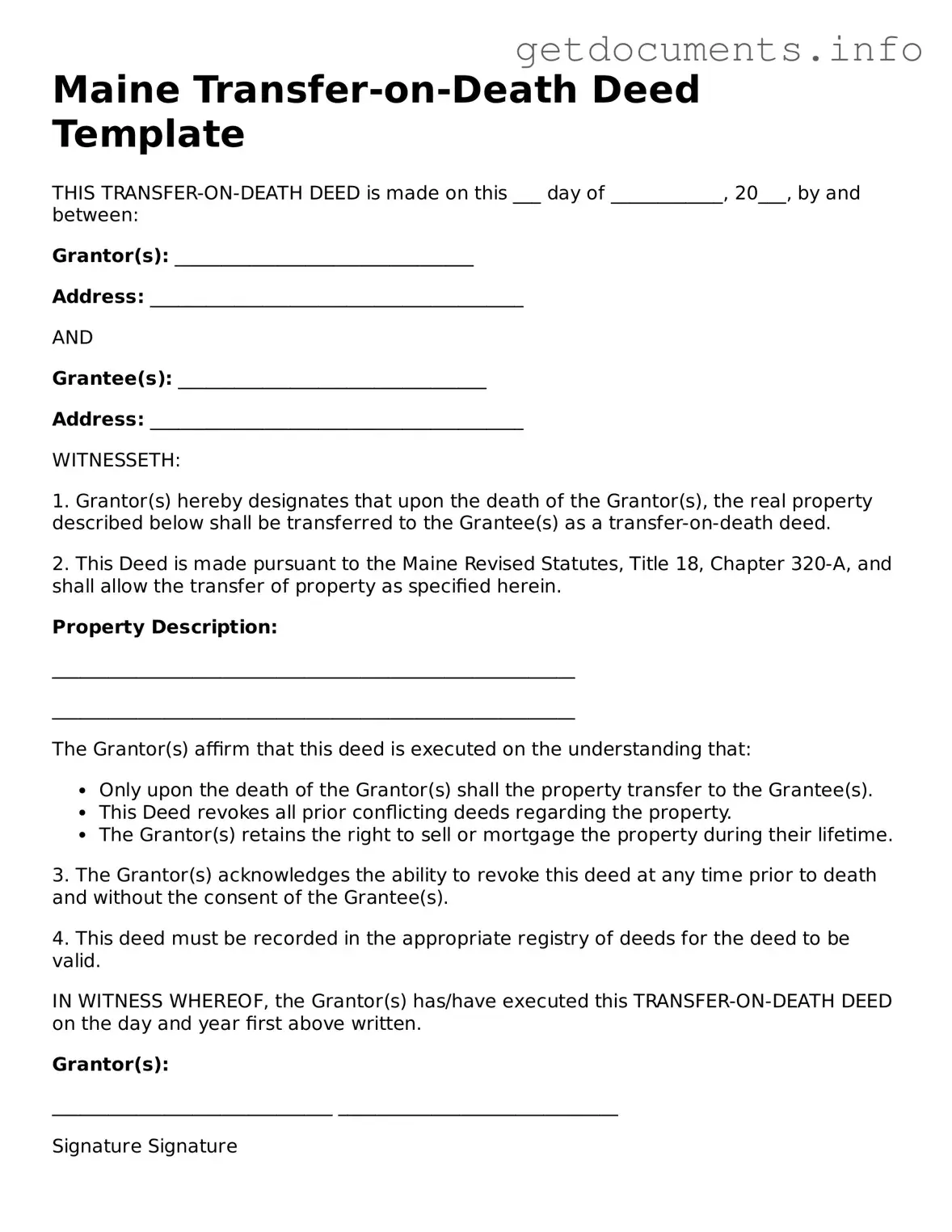Free Transfer-on-Death Deed Template for Maine
The Maine Transfer-on-Death Deed form allows property owners to designate beneficiaries who will receive their real estate upon their passing, without the need for probate. This legal tool simplifies the transfer process, ensuring that your wishes are honored while minimizing complications for your loved ones. To get started on securing your property transfer, fill out the form by clicking the button below.
Access Transfer-on-Death Deed Editor

Free Transfer-on-Death Deed Template for Maine
Access Transfer-on-Death Deed Editor
Got places to be? Complete the form fast
Fill out Transfer-on-Death Deed online and avoid printing or scanning.
Access Transfer-on-Death Deed Editor
or
⇩ PDF File
